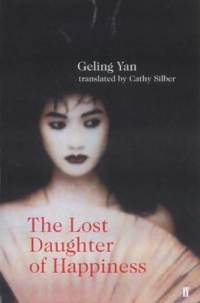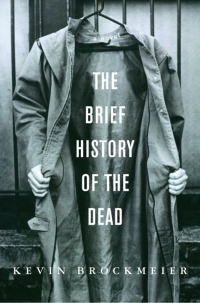The Lost Daughter of Happiness by Geling Yan
 Monday, December 6, 2010 at 3:05PM
Monday, December 6, 2010 at 3:05PM 
First published in 2001
The Lost Daughter of Happiness is a remarkable novel, a love story unlike any I've read. It unfolds in alternating points of view. Writing in the second person, as if she were speaking to Fusang, looking back at Fusang's life from the present day, the narrator's language is factual, unemotional, sometimes bordering on contemptuous: You are a prostitute, she says, brought to California from China, one who didn't die during the long voyage, who didn't succumb to disease or beatings after being sold into slavery. "I certainly won't let people confuse you with any of the other three thousand whores from China." Occasionally the narrator quotes histories of the California Gold Rush from which she draws her account of Fusang. Occasionally she tells Fusang tidbits about her own life as a recent Chinese immigrant, about her own perplexity understanding the ways of white people, including her husband.
The other point of view is third person, telling the story of Fusang in its own time, sometimes shifting to the lives of others, particularly Chris, the white teenager who quietly worships Fusang's beauty, whose life changes because of her. The other central character is Fusang's Chinese warlord-like kidnapper. Both men love Fusang, and to some extent hate her, in their own warped ways. Fusang, in turn, has special feelings for both men--as distinguished from the hordes of undifferentiated men who want to sleep with her, whose names she's incapable of remembering.
Whether she's describing a battle between Chinese clans (of which Fusang is the indirect cause) or the culture shock and isolation experienced by Chinese immigrants past and present, Geling writes with a fluid grace. Geling avoids sympathetic language, yet her stark portrayal of Fusang's plight is incredibly moving. Still, Geling paints Fusang as largely unaffected by pain or trauma. Fusang may just be simple-minded, but she evinces a knowingness that the other slave girls lack. She understands how to steal pleasure from pain, how to find freedom in enslavement. Unlike the other prostitutes, she's content with a diet of fish heads. There is something zen-like about her simplicity.
Geling writes powerfully about race riots in San Francisco more than a century ago and about present day skinheads who profess their racial hatred on talk shows. She writes about rape and redemption. This short but wide-ranging novel is filled with tension and ugliness while maintaining a soft, quiet tone, but it is also filled with hope and beauty. It is a stunning performance. The Lost Daughter of Happiness deserves a much larger audience.
HIGHLY RECOMMENDED
 TChris |
TChris |  Post a Comment |
Post a Comment |  Geling Yan,
Geling Yan,  HR in
HR in  General Fiction
General Fiction 



